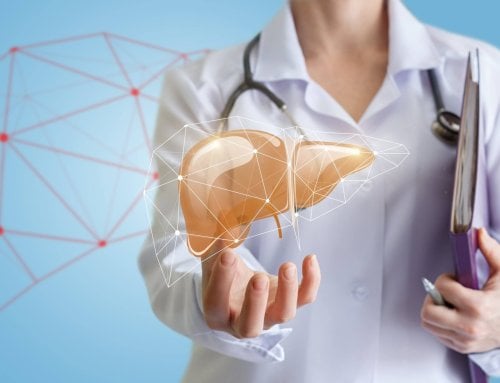Carbohydrates
Carbohydrates are a macronutrient that turns completely into sugar within 1-2 hours. Below you will find 15 gram carbohydrate portions.
Starch carbohydrates – 15 grams of carbohydrates and approximately 80 calories:
- 1/2 cup cooked cereal (ex: oatmeal), grain (ex: barley or kasha) or starchy vegetable (ex: peas, corn, beans, potatoes, winter squash like butternut or acorn)
- 1/3 cup cooked rice/pasta (preferably brown rice or whole-grain pasta)
- 1 slice of bread, 2 slices of reduced-calorie bread, 1/2 English Muffin, 1/4 large bagel, 1/2 mini bagel, 6 crackers, 2 rice cakes, 1 waffle, ¾ piece matzo, 1 pancake
- 1 ounce of snack foods (15 chips or pretzels)
Fruit carbohydrates – 15 grams of carbohydrates and approximately 60 calories:
- 1 cup fresh fruit
- 1/2 cup canned fruit, in own juice, drain out juice
- 1/2 cup (4 ounces) fruit juice
- 1 small fresh fruit or 1/2 large fresh fruit
- 2 Tablespoons dried fruit
Milk carbohydrate – 12 grams of carbohydrates:
- 1 cup (8 ounces) skim, 1%, 2%, whole milk, soy milk, rice milk
- 1/2 cup evaporated milk
- 1/3 cup dry milk
- 6 ounces plain, fat-free yogurt, or flavored with artificial sweeteners
- 1/2 cup ice cream
Dessert carbohydrates:
When/if choosing these foods please be moderate since processed sugar will spike your blood glucose quickly. There are lower fat versions and no sugar added or sugar free that might reduce the rise in blood sugar.
Try to more often choose a fruit and combine with nuts, nut butters or low-fat cheese or plain/fat-free yogurt with nuts or wheat germ/flaxseed meal/psyllium husks or other high fiber type of topping.
Examples of 15 grams worth of carbohydrates:
- 1 small ice cream scoop
- 1/2 cup of “sugar free”pudding (should be called “no sugar added” since there is milk in the pudding)
- 1 Tablespoon of syrup
- 1/4 cup sherbet
- 1/3 slice of pie
- 3 gingersnaps
- 8 animal crackers
- 1 small donut or 1 small brownie
These foods may contain high amounts of unhealthy fats, therefore, choose wisely.
Protein
Protein is a macronutrient that turns 50% into sugar within several hours. Therefore, the effect on your blood glucose is minimal. Choose the leaner types of protein so you are heart healthy.
- One ounce of protein has 7 grams of protein.
- 3 ounces is about the size of a deck of cards and would have 21 grams of protein.
Very lean protein has 35 calories per ounce and 0-1 gram of fat. Examples of hearth health proteins are:
- Most fish
- Shellfish
- Low-fat soft cheeses
- Egg whites or substitutes
- Beans – beans such as kidney beans, black beans, garbanzo beans all contain 15 grams of carbohydrates per 1/2 cup and 1 ounce (or 7 grams) of protein.
Lean protein has 55 calories per ounce and approximately 3 grams of fat.
- Beef: sirloin, flank steak, tenderloin, rib, chuck, rump roast, T-bone, porterhouse, cubed steak, ground round
- Pork: ham, Canadian bacon, tenderloin, center loin chop
- Lamb: roast, chop or leg
- Veal: lean chop, roast
- Poultry: chicken or turkey (dark meat without skin)
- Fish: Herring (no cream), oysters, salmon, catfish, sardines
Medium-fat protein has 75 calories per ounce and approximately 5 grams of fat.
- Beef: ground beef, meatloaf, corned beef, short ribs, prime rib
- Pork: top loin, chop, cutlet
- Lamb: rib roast, ground
- Veal: cutlet (ground or cubed, unbreaded)
- Poultry: chicken (dark meat with skin), ground turkey or chicken (is ground with skin), fried chicken with skin – all of these choices provide artery clogging saturated fat and are not heart healthy – please refrain or have infrequently.
- Fish: any fried fish
- Cheese with under 5 grams of fat per ounce
- Eggs
- Tofu/Tempeh
Fat
Fat is a macronutrient that turns 10% into sugar within several hours. Therefore, the effect on your blood glucose is insignificant. Each fat serving has 5 grams and 45 calories. Eat mostly unsaturated fats in your diet to reduce heart disease risk.
Monounsaturated fats are the most heart healthy. Examples are:
- Avocado (2 Tbsp)
- Canola or olive oil (1 tsp)
- Olives (8-10) – Try unsalted olives if possible
- Most nuts (6)
- Nut butters (1/2 Tbsp)
- Sesame seeds (1 Tbsp)
Polyunsaturated fats are relatively heart healthy. These are in most processed foods. Examples are:
- 1 tsp. margarine, corn, safflower or sunflower oils
- 2 walnuts (these contain heart healthy omega 3s as well as the cancer preventive compound/antioxidant called ellagic acid)
- 1 Tbsp. pumpkin and sunflower seeds
Saturated fats are not heart healthy. They clog your arteries and encourage your liver to produce more cholesterol. Use these infrequently and choose the unsaturated fats more often.
Saturated Fat Examples are:
- Butter
- Cream sauces
- Skin on poultry
- Fat on meats
- Sour cream
- Regular cheeses
- Coconut
Trans fats are not heart healthy. They work similarly to saturated fats and may produce carcinogens. They are most often found in processed foods listed in the ingredient list as partially hydrogenated fat. The polyunsaturated oils are hydrogenated (hydrogen is added) and heated to create a solid fat that is trans.













Leave A Comment